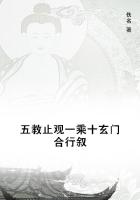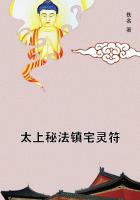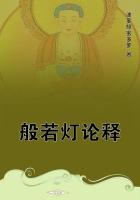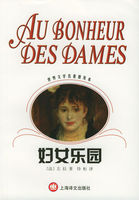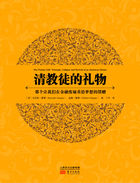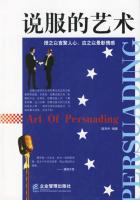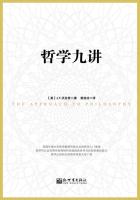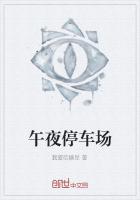Most of them follow this course, some instinctively and through lassitude, and others because the display they make adds to their authority. "Dragged along in Carriages with six horses, surrounded by guards, seated at sumptuous tables set for thirty persons, eating to the sound of music along with a Cortege of actors, courtesans and praetorians,"[135] they impress the imagination with an idea of their omnipotence, and people bow all the lower because they make a grand show. - At Troyes, on the arrival of young Rousselin, cannon are discharged as if for the entry of a prince. The entire population of Nevers is called upon to honor the birth of Fouché's child; the civil and military authorities pay their respects to him, and the National Guards are under arms.[136] At Lyons, " The imposing display of Collot d'Herbois resembles that of the Grand Turk. It requires three successive applications to obtain an audience; nobody approaches nearer than a distance of fifteen feet; two sentinels with muskets stand on each side of him, with their eyes fixed on the petitioners."[137] - Less menacing, but not less imposing, is the pomp which surrounds the representatives at Bordeaux; to approach them, requires "a pass from the captain of the guards,"[138] through several squads of sentinels. One of them, Ysabeau, who, after having guillotined to a considerable extent, has become almost tractable, allows adulation, and, like a Duc de Richelieu coming down from Versailles, tries to play the popular potentate, with all the luxuries which the situation affords. At the theaters, in his presence, they give a ballet in which shepherds form with garlands of flowers the words "Ysabeau, Liberty, Equality." He allows his portrait to pass from hand to hand, and condescendingly smiles on the artist who inscribes these words at the bottom of an engraving of the day: "An event which took place under Ysabeau, representative of the people.""When he passes in the street people take off their hats to him, cheer him, and shout 'Hurrah for Ysabeau! Hurrah for the savior of Bordeaux, our friend and father!' The children of aristocrats come and apostrophize him in this way, even at the doors of his carriage; for he has a Carriage, and several of them, with a coachman, horses, and the equipage of a former noble, gendarmes preceding him everywhere, even on excursions into the country," where his new courtiers call him "great man," and welcome him with "Asiatic magnificence." There is good cheer at his table, "superb white bread," called "representatives' bread," whilst the country folk of the neighborhood live on roots, and the inhabitants of Bordeaux can scarcely obtain more than four ounces of musty bread per day. - There is the same feasting with the representatives at Lyons, in the midst of similar distress. In the reports made by Collot we find a list of bottles of brandy at four francs each, along with partridges, capons, turkeys, chickens, pike, and crawfish, note also the white bread, the other kind, called "equality bread," assigned to simple mortals, offends this august palate. Add to this the requisitions made by Albitte and Fouché, seven hundred bottles of fine wine, in one lot, another of fifty pounds of coffee, one hundred and sixty ells of muslin, three dozen silk handkerchiefs for cravats, three dozen pairs of gloves, and four dozen pairs of stockings: they provide themselves with a good stock.[139] - Among so many itinerant tyrants, the most audaciously sensual is, I believe, Tallien, the Septembriseur at Paris and guillotineur at Bordeaux, but still more rake and robber, caring mostly for his palate and stomach. Son of the cook of a grand seignior, he is doubtless swayed by family traditions: for his government is simply a larder where, like the head-butler in "Gil Blas," he can eat and turn the rest into money. At this moment, his principal favorite is Teresa Cabarrus, a woman of society, or one of the demi-monde, whom he took out of prison; he rides about the streets with her in an open carriage, "with a courier behind and a courier in front," sometimes wearing the red cap and holding a pike in her hand,[140] thus exhibiting his goddess to the people. And this is the sentiment which does him the most credit; for, when the crisis comes, the imminent peril of his mistress arouses his courage against Robespierre, and this pretty woman, who is good-natured, begs him, not for murders, but for pardons.[141] - Others, as gallant as he is, but with less taste, obtain recruits for their pleasures in a rude way, either as fast-livers on the wing, or because fear subjects the honor of women to their caprices, or because the public funds defray the expenses of their guard-room habits. At Blois, for this kind of expenditure, Guimberteau discharges his obligations by drafts on the proceeds of the revolutionary tax.[142] Carrier, at Nantes, appropriates to himself the house and garden of a private person for "his seraglio"; the reader may judge whether, on desiring to be a third party in the household, the husband would make objections. At other times, in the hotel Henry IV., "with his friends and prostitutes brought under requisition, he has an orgy;" he allows himself the same indulgence on the galiot during the drownings; there at the end of a drunken frolic, he is regaled with merry songs, for example, "la gamelle":[143] he needs his amusements.
同类推荐
热门推荐
清教徒的礼物
本书追溯了美国管理文化的起源及特性。在三个世纪的时间内,这种文化将一小部分低微的美国殖民者变成了这世界上最伟大的经济和政治力量。本书主张,该文化核心的活力、社会流动性、竞争力和创新力,其源头是某个民族的纪律及精神特质。该民族就是美国的第一批欧洲移民——清教徒。作者认为,目前商业社会的一切问题,皆源于商业本身背离了清教徒精神。他们提出警告,当美国疏远在19世纪和20世纪支撑其商业与经济成功的核心价值观时,也将自己未来的繁荣和稳定置于险境之中。哲学九讲
哲学的根本问题是思维和存在、精神和物质的关系问题,人们在工作过程中通过对各种知识的概括学习和总结从而更好的更深刻的了解和认识自然、认识社会。哲学通常是研究根本问题的,这就需要对表面的问题进行批判的反思,通过这种反思更清楚的认识世界、了解人生。为君解罗裳:妖女倾天下
这东南国,谁人不知,谁人不晓,这要嫁的王爷,是传说中的暴君,杀人不眨眼,嗜血成狂的一个魔君的?圣旨一下,要千家的女儿嫁给东南国国的这个平南王爷,千家一听,仿佛是立马炸开了锅一样的,你不愿意去,我不愿意去,自然,就是由这个痴儿傻儿嫁过去了?

